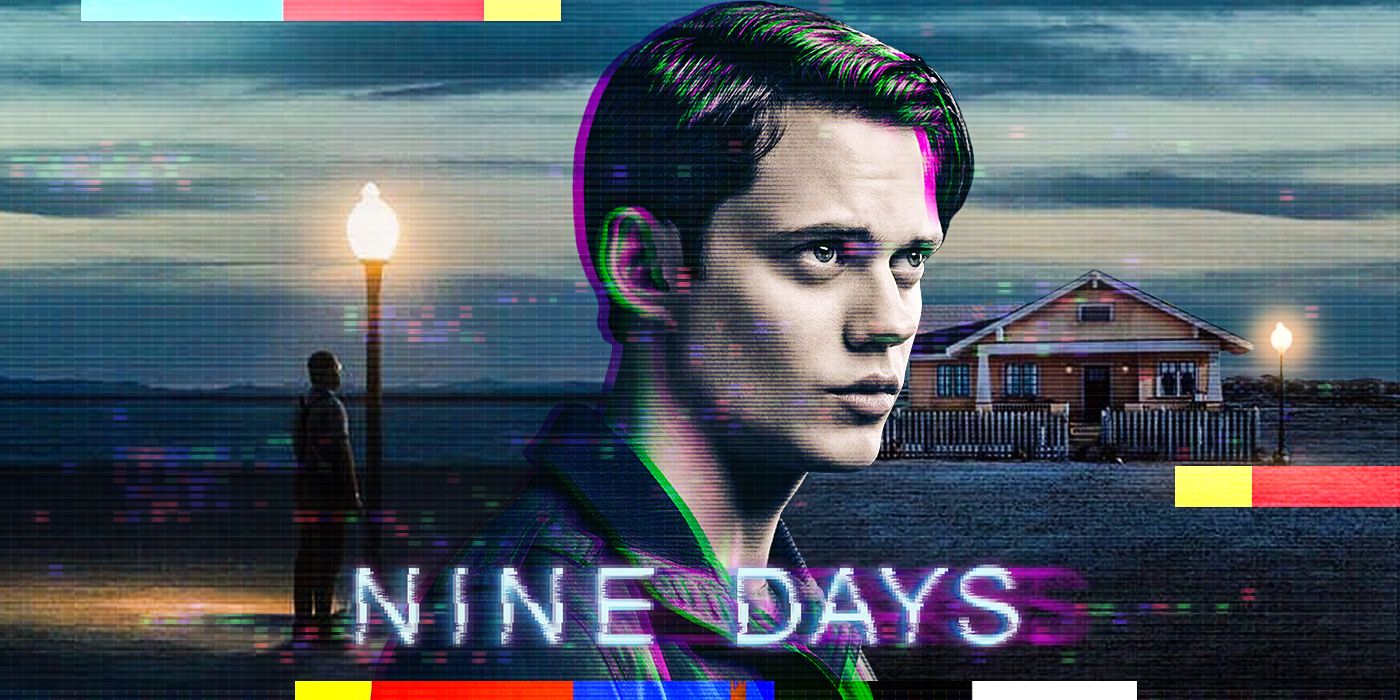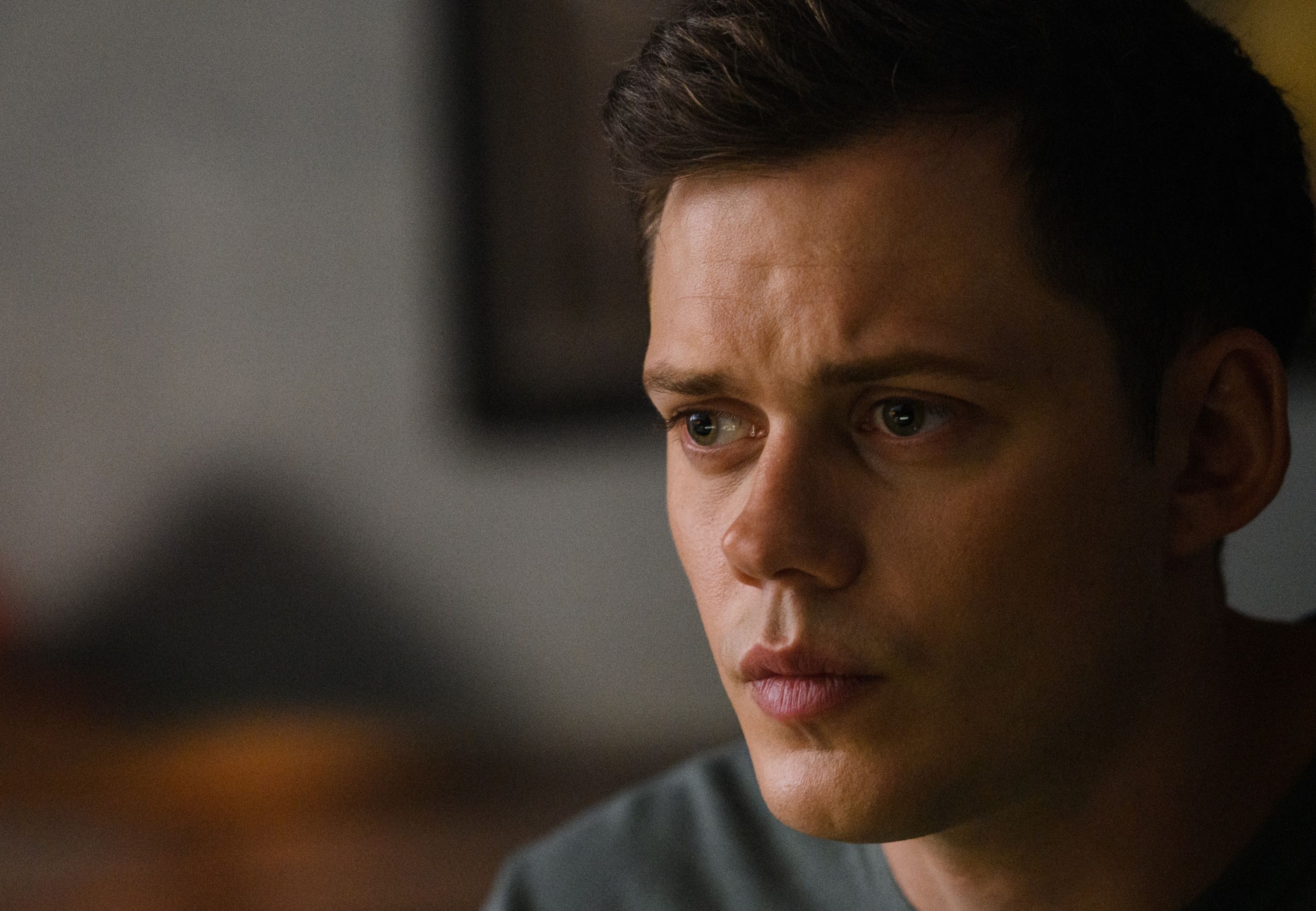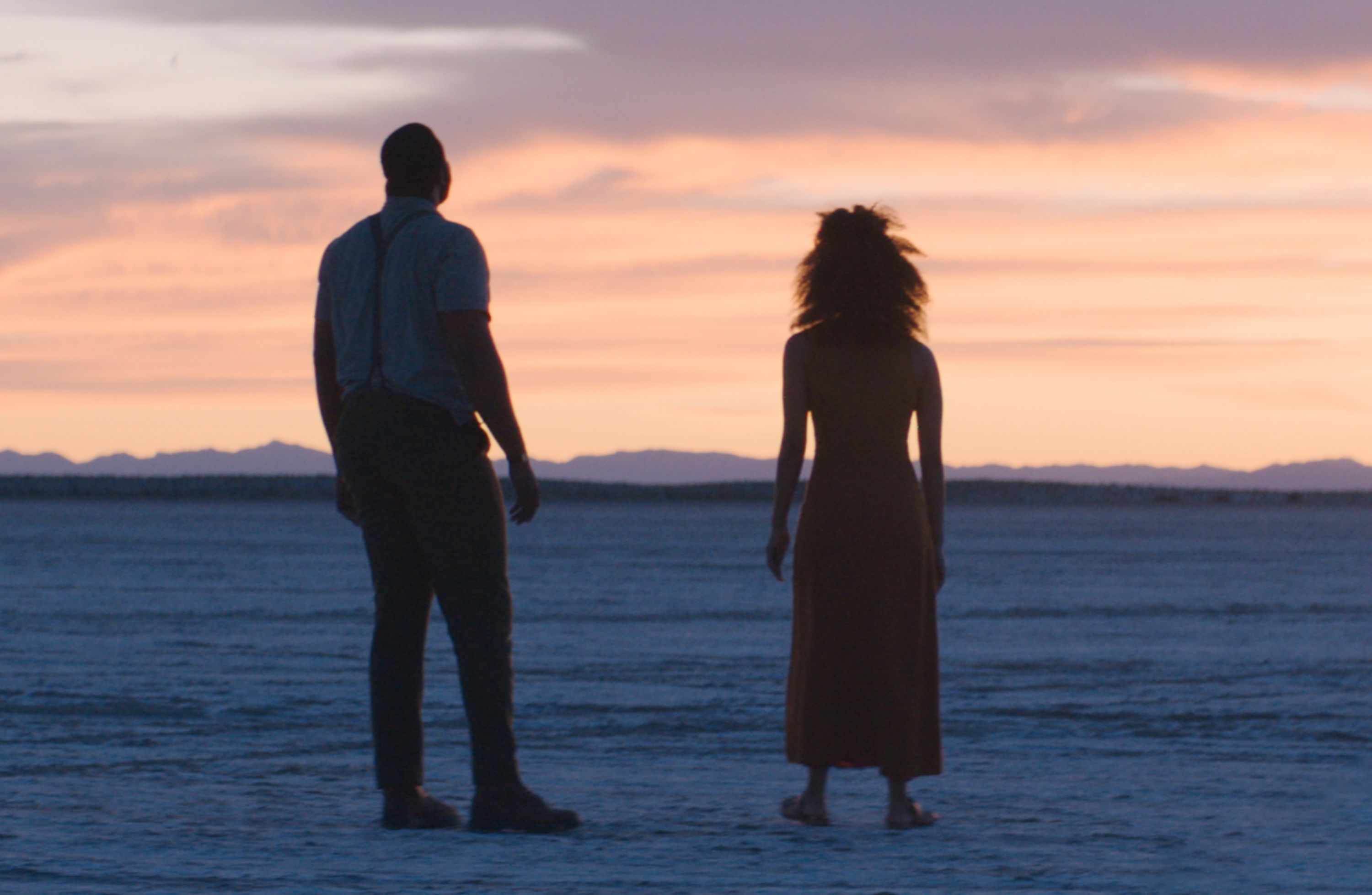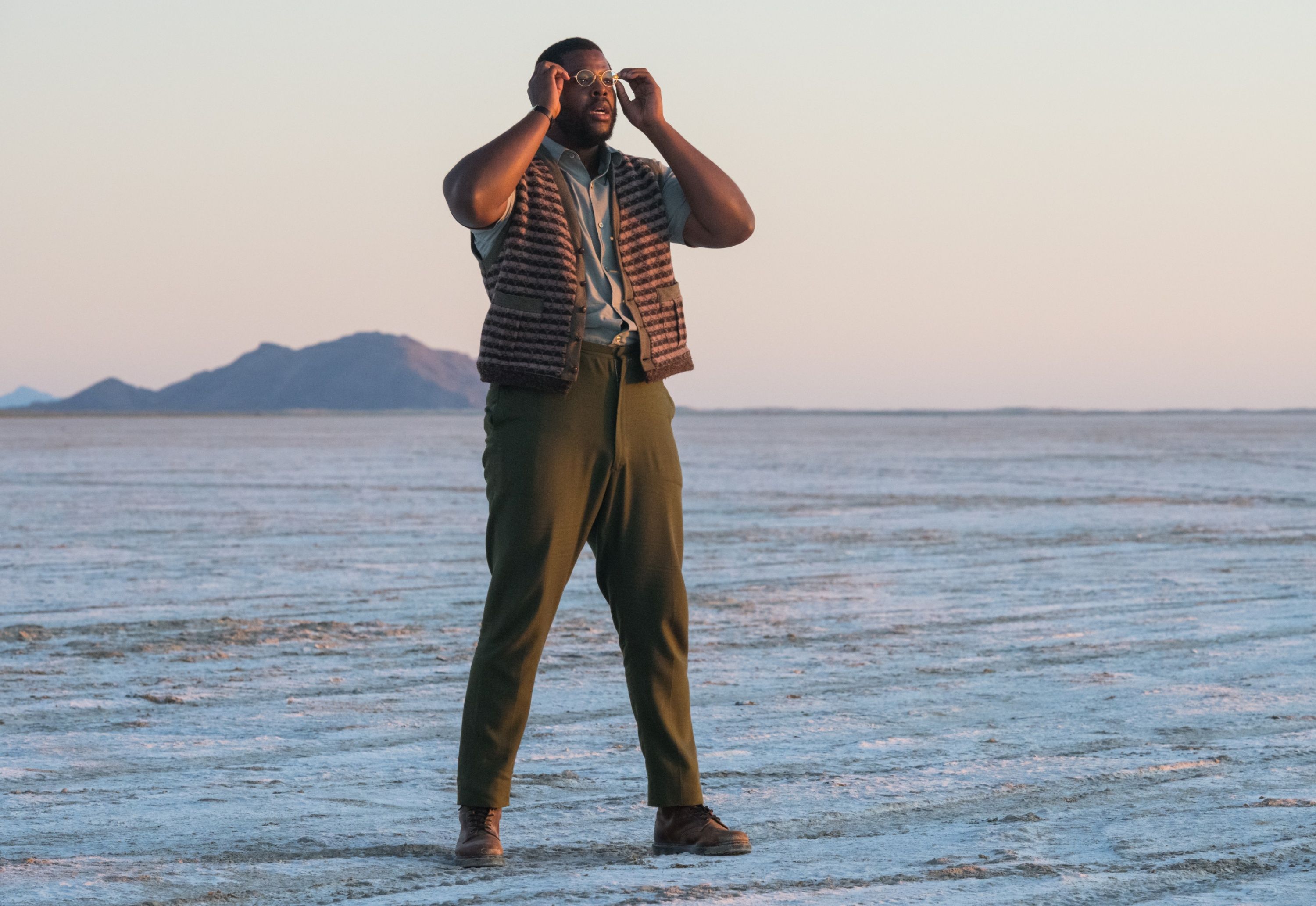From first-time feature filmmaker Edson Oda, the stripped down fantasy drama Nine Days follows a reclusive man named Will (Winston Duke), whose duty it is to interview human souls hoping for a chance to be born and select who is the most suitable. When the free-spirited Emma (Zazie Beetz) forces him to face his own demons, it sets Will on a new path in his own life.
During this virtual 1-on-1 interview with Collider, which you can both watch and read, actor Bill Skarsgård (who plays Kane, one of the candidates trying to win the opportunity to live a life) talked about why he initially found Nine Days hard to envision, telling a story that’s a very intimate human portrait, playing a character with no backstory, and how he felt about the ultimate choice in candidates. He also talked about why he wanted to sign on for John Wick 4, and how he always wants to do something different from what he’s done previously.
Collider: This is such a unusual, odd, interesting way to present a story like this one. When you read the script, was the vision for it pretty clear?
BILL SKARSGARD: No, actually. I read the script, and it is the script that later became the movie, but reading it, I was like, “This is so strange. It’s beautiful, and it’s posing all of these important philosophical questions, but it’s weird.” It was a very hard time for me, envisioning exactly what the result of the film would become. There are so many different ways of doing this story. It could feel more like a weird sci-fi movie, or something more toned down and more human, which is the end result of the film, but I just did not know. There are some scripts that you read and you have a very clear sense of what the end result is gonna, but not with this one. Even shooting it, we were figuring it out. My main objective being in this movie was to support Edson [Oda]’s vision and how he wanted it. He wrote it and it was a very personal story for him. I was like, “What is it that you wanna say with this? I can use whatever tools that I have at my disposal to support that vision.” And then, finally seeing the movie when it premiered in Sundance, I was incredibly moved and impressed by the end result of the film and Edson’s vision coming to fruition. I was also incredibly moved by all of the actors that I did not have scenes with, but did get to know during the shooting. We rehearsed for a few weeks and we hung out. I thought that all of the performances were so stellar. It was a very moving experience, finally seeing the result.
One of the things that’s so interesting about this is that questions of life and the universe make for big concepts, but the approach of this really is very small and intimate. Was that something that ultimately surprised you?
SKARSGARD: Yeah, it really did. The movie really benefits from the fact that it is this very intimate portrait of humans, really, even though not really any character is human, including Will. There were these aspects in the script as well, for sure, that it was gonna be this house built with old boxy televisions and VHS [tapes]. It’s very unique that way. Even in telling these last moments for all of these candidates, he’s recreating something that almost tastes like life, for their final moment before they disappear into the oblivion and that was minimalistic in the script. But still, it was surprising how well it all came together, with a high concept feeling that intimate and personal. It really moved me.
I’m guessing that it’s a pretty rare opportunity to play a character that’s mostly a blank slate. He’s this new soul that hasn’t lived before. How did you approach this character and figuring out who he is? When you play someone that has no past or backstory, where do you begin?
SKARSGARD: That was the question that I had, even going into my first meeting with Edson. After reading the script, I was like, “What are thoughts and beliefs on these candidates? What are they? Where did they come from?” These are characters without any past or anything, really. They’re forming their personality, as he gets to know them. The first week of rehearsal, that was something where all of us playing the candidates were like, “Okay, what does all of this mean? When I try an apple for the first time, what happens? Do you want a sensation of, ‘Oh, my God, I feel tastes for the first time,’ or do you want something where it’s like they’ve been there before?” And Edson wanted something that was much more naturalistic and simpler and more intimate. For me, my goal was just to support his vision and whatever he wanted from it. It’s not that hard for me to do a character without a backstory, per se. Backstories that are not in the script can sometimes be overrated to have, at least if you really dig into it. In a way, the characters are these personality archetypes. Leaning into that, the answers for the characters are instinctual and not based on or because of a past. That was something that I could like draw from. The answer surprises the candidate. It just comes out automatically because there’s no filter to it. They are just what they are. It was challenging, but it was also a lot of fun. For me, every day, I was like, “Edson, what do you want? What’s your vision for this?” It was such a personal story to him. He wrote the script, so whatever he wanted, I tried to give him.
What was the production like on this? Because so much of it really is stripped down without any bells and whistles, did you only get to do a couple of takes of each scene, or was there more time spent exploring things in the scenes?
SKARSGARD: Most of it was shot on a stage, where they built the interior of the house. It was quite comfortable. We shot it in Salt Lake City in Utah, at the end of the summer in September. At times, it was really hot, but the longer we went into the production, it cooled down to a beautiful early fall there. In the beginning, it was more about exploring. I was like, “Edson, I could give you a lot of different things here, for the character. I could give you weirder things, if you want something that’s more sci-fi-esque. I can give you a performance that’s more abstract because the movie is abstract.” But he didn’t want that, so it became about finding the right tone and exploring. We were just figuring it out. As soon as Edson felt that he had something, we moved on. The only day, for me, that took a really long time was the dinner scene. That had a lot of coverage and a camera rig that circled around us. Other than that, most of my scenes were just me and Winston [Duke] with classic coverage, and we got to have fun with it.
There’s been some talk about you joining John Wick 4. Is that true?
SKARSGARD: Yeah.
What made you want to do that? Did you secretly want to be an action star? What was the attraction to that?
SKARSGARD: I think the movies are very entertaining. I’ve always been a fan of these kind of over the top, exploitive action movies. (Director) Chad [Stahelski] reached out to me and I met him a few times, and I really liked him. It was a really fun role. I’m not gonna go into detail of what it is, but it was a fun role and a fun world. I like the movies. I think they’re entertaining and it is something that I haven’t really done before. That’s always something that does inspire me, for whatever it is. It’s like, “Okay, this is a project or genre or something that I haven’t done, so let’s try it out and let’s have fun within those genre constraints.” So, I’m really looking forward to it.
How do you think the action will compare to stuff that you’ve done before? We’ve seen the kind of action those films have to offer. Is it something that you’ll have to train a lot for?
SKARSGARD: No. Again, I don’t wanna get into too much detail, but it’s something different. That’s why I wanted to do it. I’ve had it for a very long time that I want to try to be as versatile as I possibly can, whether it is crossing genres or playing these vastly different characters. I actually just finished a horror film, but I feel like the horror genre is something that I’ve done a lot of. I’d like to do comedy and I’d like to do action. I’d like to do as much as possible. And I think that’s the key to longevity in this business and having a fun career where you can go like, “I can do a lot of different things,” so you don’t end up limited into this box, which happens all the time. The industry itself is like, whatever your last big success is, that’s what they think that you are. “Oh, he’s great at being freaky monsters,” then freak monsters becomes you’re a type and you’re like, “Wait a minute, I can do a lot more than that.” So, I’m just trying to do as many different types of roles and projects as I can. As long as there’s something that I find interesting and fun in the character, that’s how I respond to it and I’m like, “Oh, I can do something with this.” That inspires me. So, basically it’s as simple as that.
With Nine Days, did you have conversations with Edson Oda about why this guy was ultimately the candidate who was chosen?
SKARSGARD: Yeah. It had less to do with me and more to do with Winston’s character Will, who ultimately comes up with that position. There are certain moments in the script that makes Will make the decision that he ends up making and they’re very specific. That had more to do with Will then it had to do with me, for why he makes that call. I thought it was very strong. The critique that the movie has of this harsh, unforgiving world that we live in, becomes stronger with that ending. There is a point for the movie to end that way, as well as for the reasons why Will ultimately makes that call.
It’s something that seems like it would be such a clear-cut decision on its surface, but it’s much more complicated than that.
SKARSGARD: Yeah. I hope that people walk out of the theater, after they’ve seen this film, and go have a drink and try to dissect it and talk about it. I think that a lot of people will have very different opinions on it as well. The film itself invites spiritual and philosophical conversation afterwards. People might be upset about some things and that can lead into an argument, but that can be a conversation starter. That’s a great part of great films. People talk about them, think about them, and care about them afterwards.
Nine Days is now playing in theaters.




